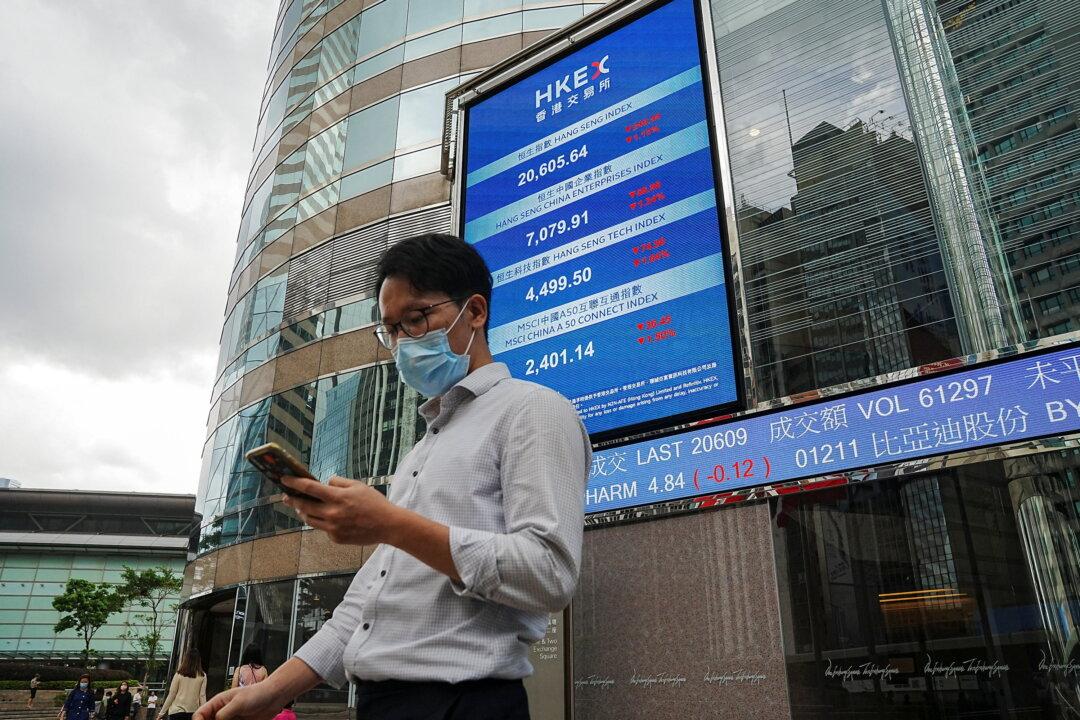LONDON—European stock markets opened in the red on Wednesday after U.S. economic data prompted traders to ramp up Federal Reserve rate hikes bets, pushing the dollar to a 24-year high against the Japanese yen.
U.S. Treasury yields jumped and the dollar received a boost by data on Tuesday which showed the U.S. services industry picked up in August, reinforcing expectations for aggressive Fed rate hikes. Markets were pricing in a 73 percent chances of a 75 basis point hike at the Fed’s next meeting.





